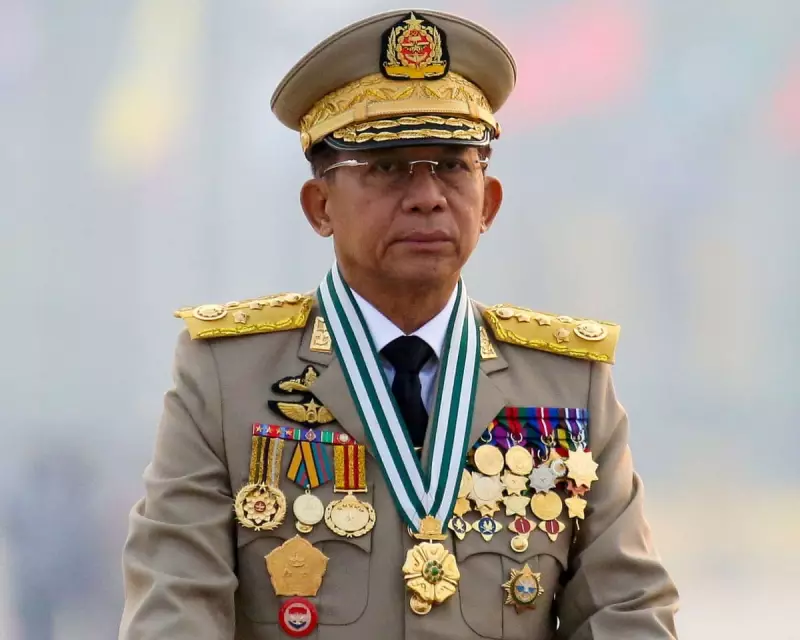
In the heart of Southeast Asia, a nation continues to be strangled by an authoritarian regime determined to cement its power at any cost. Four years after the brutal coup d'état, Myanmar's military junta is employing a chillingly comprehensive playbook to crush dissent and silence opposition, defying a horrified yet seemingly impotent global community.
A Regime Built on Fear and Force
The Tatmadaw, Myanmar's military, has systematically dismantled the foundations of civil society. Its strategy is not merely one of violent suppression, though that remains a core tactic. The regime has engineered a sophisticated architecture of control, weaving together economic pressure, legal persecution, and pervasive digital surveillance to subjugate its population.
The Illusion of Legitimacy and Electoral Farce
A central pillar of the junta's strategy is the desperate pursuit of a veneer of legitimacy. Plans for a sham election are widely seen as a cynical attempt to rebrand its violent seizure of power as a democratic transition. This political theatre, conducted amidst widespread terror and the imprisonment of legitimate leaders like Aung San Suu Kyi, is designed to confuse the international community and create a false narrative of normalcy.
International Paralysis and Failed Diplomacy
The response from the global stage has been marked by frustrating inertia and division. Regional bloc ASEAN's 'Five-Point Consensus' lies in tatters, a testament to the failure of quiet diplomacy. While Western nations have imposed sanctions, they are often poorly coordinated and easily circumvented, failing to strike a decisive blow against the junta's financial networks and oil and gas revenues that fuel its war machine.
The Human Cost: A Nation's Resilience
Beyond the political manoeuvring lies an immense human tragedy. Civilian casualties mount, humanitarian access is blocked, and a generation faces a future stripped of opportunity. Yet, amidst the darkness, the resilience of the Myanmar people endures. A robust resistance movement, both armed and civil, continues to challenge the regime's authority daily, proving that the will for freedom remains unbroken.
The Path Forward: Beyond Condemnation
Merely condemning the junta's actions is no longer enough. The international community faces a stark choice: continue with a failing policy of half-measures or adopt a radically coordinated approach. This must include:
- Targeted Economic Sanctions: Closing loopholes and directly sanctioning the junta's key revenue streams from natural resources.
- Recognition of the Opposition: Formally engaging with and legitimising the National Unity Government (NUG) as the true representatives of the people.
- Humanitarian Corridors: Insisting on and enforcing safe passage for aid to reach the millions displaced and in desperate need.
- Global Accountability: Pursuing charges of war crimes and crimes against humanity through international legal bodies.
The future of Myanmar hangs in the balance. The junta's grip on power is sustained by fear and force, but its legitimacy is nonexistent. The world must decide whether to be a bystander to a devastating conflict or to finally take meaningful action to support a population's courageous fight for democracy.





